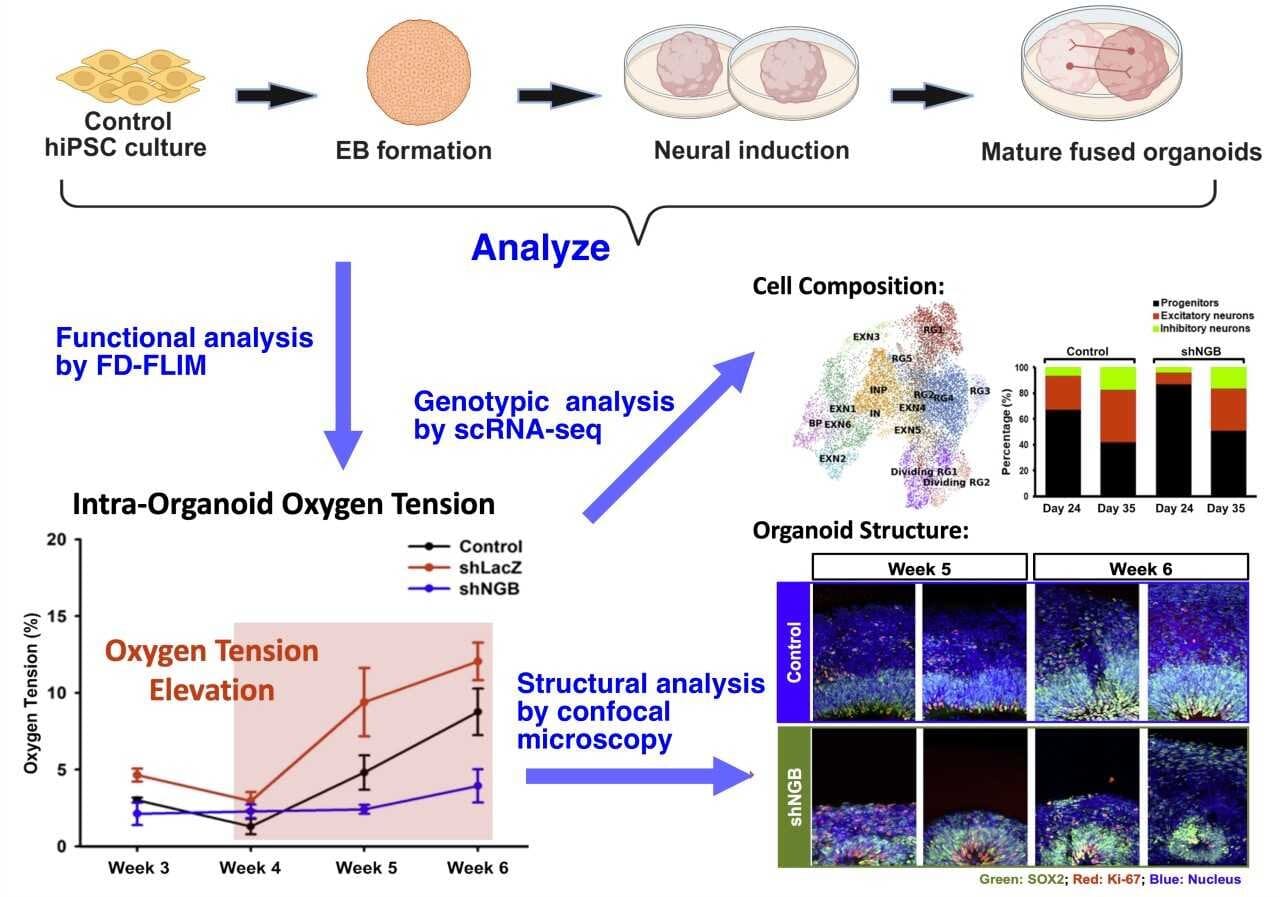A recent study reveals that oxygen tension elevation during weeks four to six promotes neurogenesis in brain organoids, regulated by neuroglobin. The research is published in Science Advances.
Professor Hsiao-Mei Wu from the Department of Biomechatronics Engineering, National Taiwan University, in collaboration with Dr. Yi-Chung Tung from the Research Center for Applied Sciences, Academia Sinica, have unveiled the crucial role of oxygen tension in early human brain development.
The research team employed human cerebral organoids as a model system and integrated advanced fluorescence lifetime imaging microscopy (FLIM) with oxygen-sensitive microbeads to monitor intra-organoid oxygen tension variation during development.
By combining this with single-cell RNA sequencing (scRNA-seq) and metabolomics analyses, they explored how temporal elevation of oxygen tension influences neurodevelopment.
Led by Dr. Tung, the study is the first to reveal, through multiomic analysis, that the oxygen tension elevation during the 4th and 6th weeks of organoid development plays a pivotal role in shaping neuronal differentiation and brain tissue growth.
"This discovery provides a novel perspective on the mechanisms underlying neurodegenerative diseases and offers potential directions for future therapeutic strategies," says Prof. Hsiao-Mei Wu.
More information: Yuan-Hsuan Liu et al, Shaping early neural development by timed elevated tissue oxygen tension: Insights from multiomic analysis on human cerebral organoids, Science Advances (2025). DOI: 10.1126/sciadv.ado1164
Journal information: Science Advances
Provided by National Taiwan University


